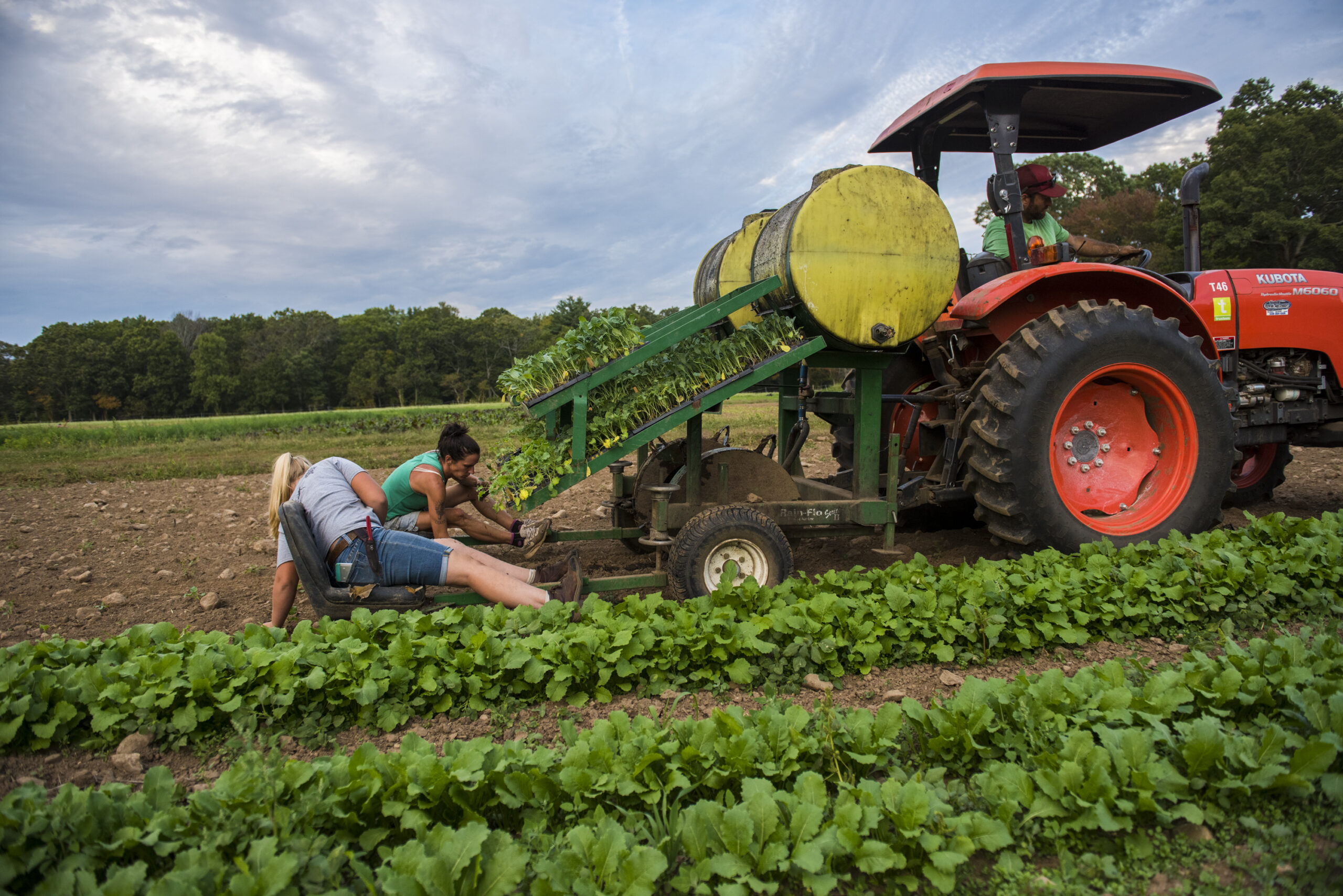by Dr. Joseph Mercola, Mercola:

STORY AT-A-GLANCE
- My biodynamic brand, Solspring, has one of the largest assortments of biodynamic products of any company in the world. We offer more than 70 Demeter certified biodynamic pantry staples, from snacks and spreads, to coffees and teas
- Biodynamic agriculture is a spiritual-ethical-ecological approach to agriculture, initially developed by Austrian scholar Rudolf Steiner, Ph.D., (1861-1925). Biodynamic certification meets both organic and regenerative certification standards, and then some
TRUTH LIVES on at https://sgtreport.tv/
- Biodynamic farming provides superior crops both in volume and increased density of nutrients. Biodynamic farms are also completely self-sustaining
- Buying foods produced by farms certified as biodynamic through Demeter offers the greatest assurance of food quality and environmental sustainability
- Get to know your local farmers. Talk to them. Visit their farms. Organic, regenerative and biodynamic farmers tend to be extremely passionate about their work and most will embrace the opportunity to educate consumers about what sets them apart
The short video above features three American biodynamic farmers who supply the raw materials that go into our biodynamic product line. The first is Justin Trussoni, president of Fifth Season Cooperative in Viroqua, Wisconsin. Trussoni grows biodynamic hemp and vegetables.
The second is Cecil Wright, a biodynamic maple farmer and founder of the Maple Valley Co-op. The third is Brian Wickert, vice president of Fifth Season Cooperative. He’s been growing biodynamic vegetables and herbs since 1997. Wickert is also the primary formulator of the biodynamic soil preparations used by other biodynamic growers.
As noted by Wickert, my biodynamic brand, Solspring,1 now has one of the largest assortments of biodynamic products of any company in the world. We offer more than 70 Demeter certified biodynamic pantry staples, from snacks and spreads, to coffees and teas, and that’s in no small part thanks to our partnership with growers like Wickert, Wright and Trussoni, who put their hearts and souls into their work.
What Is Biodynamic?
Biodynamic agriculture is a spiritual-ethical-ecological approach to agriculture, initially developed by Austrian scholar Rudolf Steiner,2 Ph.D., (1861-1925). Today, it meets both organic and regenerative certification standards, and then some.
Biodynamic farming provides superior crops both in volume and increased density of nutrients. Biodynamic farms are also completely self-sustaining — something that cannot be said even for most organic farms. For example, biodynamic standards do not simply require farmers to use organic animal feed. Most of the feed must actually originate from the farm itself.
And, while an organic farmer can section off as little as 10% of the farm for the growing of certified organic goods, 100% of a biodynamic farm must be in compliance with biodynamic standards to qualify for certification.
In addition to that, 10% of the land must also be dedicated to increasing biodiversity. This could take the form of forest land, wetland or insectary, for example. Biodynamic farming also has all of the features associated with regenerative agriculture, such as crop rotation, the use of cover crops and so on.
Having animals integrated on the farm, with a focus on animal welfare, is another core principle of biodynamic farming. In short, the farm is viewed as a living, self-sustainable whole, and biodiversity of both plants and animals are integral parts of that.
In my view, this is really as good as it gets, and buying foods produced by farms certified as biodynamic through Demeter offers the greatest assurance of food quality and environmental sustainability.

If you want to take a deeper dive into the biodynamic principles pioneered by Steiner, check out Jonathan Stedall’s documentary “The Challenge of Rudolf Steiner,” below. It’s also available on Amazon Prime Video.
The Need for Regenerative Agriculture Has Never Been Greater
Modern chemical-based agriculture has resulted in the destruction of rural economies, water and air pollution, depletion of aquifers, destruction of pollinators and biodiversity, soil erosion and loss of soil fertility, climate destabilization, food contamination, nutrient degradation and the deterioration of public health.
According to the U.S. Centers for Disease Control and Prevention,3 6 in 10 American adults now have a chronic disease; 4 in 10 have two or more, and one of the primary reasons for that is poor nutrition.
The most recent government data4 back that up, showing that 45% of Americans do not meet the daily requirements for vitamin A, 46% don’t get enough vitamin C, 95% fall short of their vitamin D requirement, 84% don’t get enough vitamin E, and 15% don’t get enough zinc. Any one of these deficiencies can spell trouble. As noted by the authors:5
“A well-functioning immune system is essential for human health and well-being. Micronutrients such as vitamins A, C, D, E, and zinc have several functions throughout the immune system, yet inadequate nutrient intakes are pervasive in the US population.
A large body of research shows that nutrient inadequacies can impair immune function and weaken the immune response … Dietary supplements can help address nutrient inadequacy for these immune-support nutrients …
Given the long-term presence and widening of nutrient gaps in the U.S. — specifically in critical nutrients that support immune health — public health measures should adopt guidelines to ensure an adequate intake of these micronutrients.”
Sad to say, I don’t think that will happen, because even if you consume the recommended amount of fruits and vegetables, you’ll still fall short of nutritional requirements for the simple reason that today’s conventionally-grown produce contain far fewer nutrients than their counterparts 50 years ago.6
The reason for this is because plants get their nutrients from the soil, and if the soil is depleted of nutrients, the fruits, veggies and herbs will contain lower amounts as well.
Factory farmed, GMO grain-fed meat, eggs and dairy also typically contain lower levels of omega-3s, vitamin E, beta-carotene, antioxidants and conjugated linoleic acid (CLA) than 100% grass fed and biodynamically-raised animal products.




